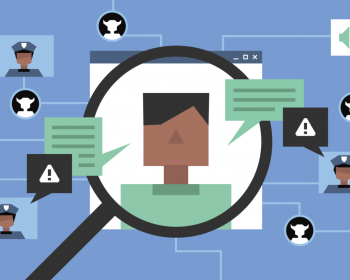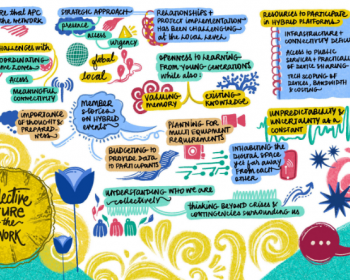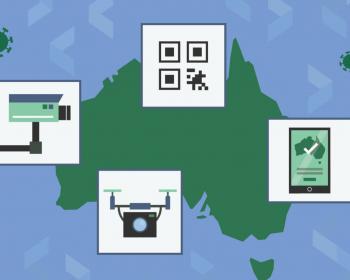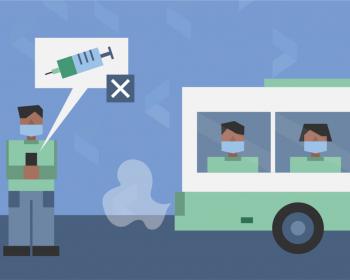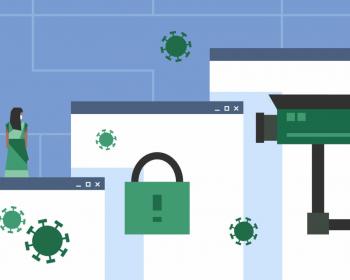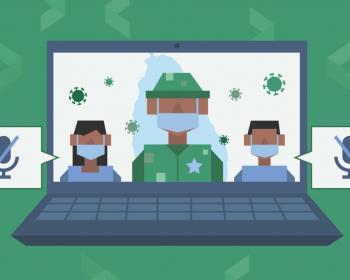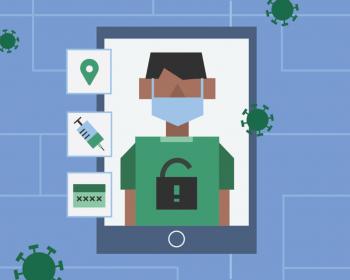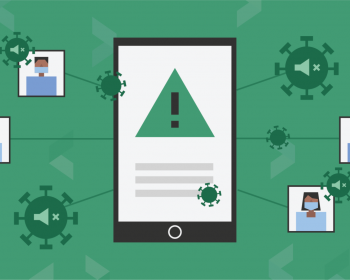Closer than ever
APC understands that we are all dealing with unprecedented circumstances as we face the challenges, fear and uncertainty brought on by the spread of the COVID-19 pandemic. We know it impacts our work, our personal lives and the lives of those we care about. Each country is tackling the situation differently, so the contexts we find ourselves in are as diverse as the ways we find to navigate shifting conditions.
In these exceptional times, we wish to send our solidarity and appreciation for connecting with us. While we are distancing ourselves physically, we continue to stay closer than ever to each other and share tools and resources as well as support. We also want to examine how we can continue to promote human rights online in the context of a global pandemic. We are all facing this problem together but we know it affects different countries and communities in different ways. Therefore, we would like to channel the strength of our network to share some important resources that we hope will be empowering, enlightening and reassuring.
Below you will find articles and insights shared by our community, which has been working on human rights and technology issues for over 30 years. We will be updating these lists on a regular basis, so please feel free to connect with us if you have some resources to share.
Digital technologies play an increasingly central role in our lives and have a major impact on our mental health. TEDIC, an APC member in Paraguay, takes this as its starting point when working on "technostress", a phenomenon affecting an ever growing percentage of the population.
In Indonesia, a rise in hard-line approaches to governance is heralding looming authoritarianism. The COVID-19 pandemic has provided the government there with the opportunity to further accelerate digital authoritarianism through online surveillance, censorship and online manipulation.
We want the collective power of communities within and beyond the APC network to be harnessed through existing and new relationships built around transformative actions and our shared visions. Check out our achievements in this area in 2021.
Australia adopted a range of technology-based responses to address the COVID-19 pandemic, but this approach resulted in “solutions” that ranged from the outright ineffective to the actively punitive.
Governments around the world have resorted to apps to restrict freedom of movement for the unvaccinated as part of their COVID-19 response. Some argue that the use of such tools drives up vaccination rates, but sceptics point out that these tools pose risks to privacy and digital security.
The push for digitisation during the pandemic – whether for health management or to keep daily activities going amid lockdowns – deepened the digital divide in India, since escalated digital adoption without adequate policy protections can exclude the already marginalised even more.
The Zalo Connect app in Vietnam connects users in need with private donors. But in doing so, it exemplifies a humanitarian trend that centres on extracting data from vulnerable communities as a precondition to receiving aid, protection and justice.
The Sri Lankan government has capitalised on the COVID-19 pandemic to further its authoritarian agenda, using digital technologies to reinforce a climate of fear and censorship.
In Indonesia, the PeduliLindungi app has become synonymous with the COVID-19 pandemic. Yet it poses an unprecedented threat while leaving citizens with little recourse to protect their data. This article is part of the "Pandemic of Control" series by EngageMedia and CommonEdge.
EngageMedia and CommonEdge invited writers, researchers and changemakers to respond to the growing digital authoritarianism – accelerated by COVID-19 – in the Asia-Pacific. The result is a 10-part series featuring insights from Indonesia, Vietnam, India, Sri Lanka, Bangladesh, Nepal and Australia.

Association for Progressive Communications (APC) 2022
Unless otherwise stated, content on the APC website is licensed under Creative Commons Attribution 4.0 International (CC BY 4.0)




